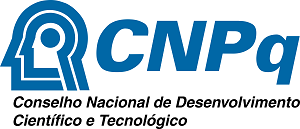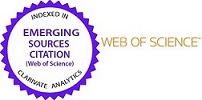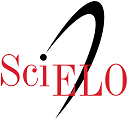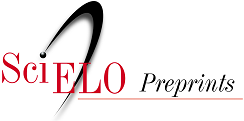A eficácia dos mapas mentais colaborativos na aprendizagem e ensino de tecnologias aplicadas à Matemática
DOI:
https://doi.org/10.25053/redufor.v9.e13292Palavras-chave:
Mapa mental, Aprendizagem Colaborativa, Ensino, AprendizagemResumo
Este artigo investiga a eficácia dos mapas mentais colaborativos como ferramenta de ensino e aprendizagem na disciplina de Tecnologias Aplicadas ao Ensino da Matemática II. A pesquisa, realizada com estudantes de licenciatura em Matemática, utiliza uma metodologia mista, combinando análises qualitativas e quantitativas. A geração de dados foi realizada por meio de um questionário e observações do professor. Os resultados encontrados destacam que os mapas mentais colaborativos melhoram a organização, a retenção de informações e a motivação dos estudantes. Além disso, promovem a aprendizagem colaborativa e o desenvolvimento de habilidades críticas, como criatividade e pensamento crítico. Apesar dos desafios relacionados à clareza e à organização, a ferramenta se mostra eficaz no ensino e na aprendizagem, oferecendo uma abordagem inovadora para o ensino superior. Conclui-se que os mapas mentais colaborativos não só tornaram eficazes o ensino e a aprendizagem, mas também promoveram um ambiente de ensino mais interativo e colaborativo.
Downloads
Referências
ARAUJO, R. C. Collaborative mind mapping to support online discussion in teacher education. [S.l.]: 2019.
ARAUJO, R. C.; GADANIDIS, G. Online collaborative mind mapping in a mathematics teacher education program: A study on student interaction and knowledge construction. ZDM - Mathematics Education, [S.l.], v. 52, n. 5, p. 943-958, 2020. DOI: https://doi.org/10.1007/s11858-019-01125-w. DOI: https://doi.org/10.1007/s11858-019-01125-w
BADRIAH, L. et al. Collaborative mind mapping in RICOSRE learning model to improve students’ information literacy. International Journal of Evaluation and Research in Education, [S.l.], v. 13, n. 1, p. 559-569, 2024. DOI: https://doi.org/10.11591/ijere.v13i1.26840
BANDURA, A. Social learning theory. Englewood Cliffs: Prentice-Hall, 1976.
BUZAN, B.; BUZAN, T. The mind map book: How to use radiant thinking to maximize your brain’s untapped potential. London: Penguin, 1996.
BUZAN, T. Dominando a técnica dos mapas mentais: guia completo de aprendizado e o uso da mais poderosa ferramenta de desenvolvimento da mente humana. São Paulo: Cultrix, 2019.
CAMARGO, B. V.; JUSTO, A. M. IRAMUTEQ: um software gratuito para análise de dados textuais. Temas em Psicologia, Ribeirão Preto, v. 21, n. 2, p. 513-518, 2013. DOI: https://doi.org/10.9788/TP2013.2-16
CAMARGO, B. V.; JUSTO, A. M. Tutorial para uso do software de análise textual IRAMUTEC. Laboratório de Psicologia Social da Comunicação e Cognição, Florianópolis, p. 32, 2016.
CORBIN, J.; STRAUSS, A. Basics of qualitative research: Techniques and procedures for developing grounded theory. 4. ed. Thousand Oaks: Sage, 2015.
CRESWELL, J. W. Projeto de pesquisa: métodos qualitativo, quantitativo e misto. 3. ed. Porto Alegre: Artmed, 2010.
DAVIES, M. Concept mapping, mind mapping and argument mapping: What are the differences and do they matter?. Higher Education, [S.l.], v. 62, n. 3, p. 279-301, 2011. DOI: https://doi.org/10.1007/s10734-010-9387-6
DAY, J. C.; BELLEZZA, F. S. The relation between visual imagery mediators and recall. Memory & Cognition, [S.l.], v. 11, n. 3, p. 251-257, 1983. DOI: https://doi.org/10.3758/BF03196971
DILLENBOURG, P. What do you mean by collaborative learning?. In: DILLENBOURG, P. (ed.). Collaborative – learning: Cognitive and computational approaches. Oxford: Elsevier, 1999. p. 1-19.
FIELD, A. Descobrindo a estatística usando o SPSS. 2. ed. Porto Alegre: Artmed, 2021.
FU, Q. K. et al. Impacts of a mind mapping-based contextual gaming approach on EFL students’ writing performance, learning perceptions and generative uses in an English course. Computers and Education, [S.l.], v. 137, p. 59-77, 2019. DOI: https://doi.org/10.1016/j.compedu.2019.04.005. DOI: https://doi.org/10.1016/j.compedu.2019.04.005
FUNG, D.; LIANG, T. The effectiveness of collaborative mind mapping in Hong Kong Primary Science Classrooms. International Journal of Science and Mathematics Education, [S.l.], v. 21, n. 3, p. 899-922, 2023. DOI: https://doi.org/10.1007/s10763-022-10279-1. DOI: https://doi.org/10.1007/s10763-022-10279-1
GIL, A. C. Como elaborar projetos de pesquisa. 4. ed. São Paulo: Atlas, 2002.
HERNÁNDEZ-SELLÉS, N.; MUÑOZ-CARRIL, P.-C.; GONZÁLEZ-SANMAMED, M. Interaction in computer supported collaborative learning: an analysis of the implementation phase. International Journal of Educational Technology in Higher Education, [S.l.], v. 17, n. 1, p. 23, 2020. DOI: https://doi.org/10.1186/s41239-020-00202-5
LAHLOU, S. Text mining methods : na answer to Chartier and Meunier. Papers on Social Representation, [S.l.], v. 20, n. 38, p. 1-7, 2012.
MAGNO, C. M. V.; GONÇALVES, T. V. O. O testemunho em pesquisa narrativa e a análise textual discursiva associada ao Iramuteq. Amazônia: Revista de Educação em Ciências e Matemáticas, Manaus, v. 19, n. 42, p. 18-34, 2023. DOI: https://doi.org/10.18542/amazrecm.v19i42.12980
MARTINS, K. N. et al. O software IRaMuTeQ como recurso para a análise textual discursiva. Revista Pesquisa Qualitativa, São Paulo, v. 10, n. 24, p. 213-232, 2022. DOI: http://dx.doi.org/10.33361/RPQ.2022.v.10.n.24.383. DOI: https://doi.org/10.33361/RPQ.2022.v.10.n.24.383
PINTRICH, P. R. The role of motivation in promoting and sustaining self-regulated learning. International Journal of Educational Research, [S.l.], v. 31, n. 6, p. 459-470, 1999. Disponível em: https://linkinghub.elsevier.com/retrieve/pii/S0883035599000154. Acesso em: 10 jan. 2024. DOI: https://doi.org/10.1016/S0883-0355(99)00015-4
SOMERS, M. J. et al. Using mind maps to study how business school students andfaculty organize and apply general business knowledge. International Journal of Management Education, [S.l.], v. 12, n. 1, p. 1-13, 2014. DOI: http://dx.doi.org/10.1016/j.ijme.2013.11.001. DOI: https://doi.org/10.1016/j.ijme.2013.11.001
TANRISEVEN, I. A tool that can be effective in the self-regulated learning of pre-service teachers: The mind map. Australian Journal of Teacher Education, [S.l.], v. 39, n. 1, p. 65-80, 2014. Disponível em: http://ro.ecu.edu.au/ajte/vol39/iss1/5. Acesso em: 10 jan. 2024. DOI: https://doi.org/10.14221/ajte.2014v39n1.1
VYGOTSKY, L. Mind in society: The development of higher psychological processes. Massachusetts: University Harvard, 1978.
WU, C. H. et al. A mindtool-based collaborative learning approach to enhancing students’ innovative performance in management courses. Australasian Journal of Educational Technology, [S.l.], v. 29, n. 1, p. 128-142, 2013. DOI: https://doi.org/10.14742/ajet.163
WU, T. T.; CHEN, N. C. Combining e-books with mind mapping in a reciprocal teaching strategy for a classical Chinese course. Computers and Education, [S.l.], v. 116, p. 64-80, 2018. DOI: https://doi.org/10.1016/j.compedu.2017.08.012. DOI: https://doi.org/10.1016/j.compedu.2017.08.012
YAN, Z. et al. Enhancing students’ self-efficacy in creativity and learning performance in the context of english learning: The use of self-assessment mind maps. Frontiers in Psychology, [S.l.], v. 13, p. 1-11, 2022. Disponível em: https://www.frontiersin.org/articles/10.3389/fpsyg.2022.871781/full. DOI: https://doi.org/10.3389/fpsyg.2022.871781
ZHENG, X.; JOHNSON, T. E; ZHOU, C. A pilot study examining the impact of collaborative mind mapping strategy in a flipped classroom: learning achievement, self-efficacy, motivation, and students’ acceptance. Educational Technology Research and Development, [S.l.], v. 68, n. 6, p. 3527-3545, 2020. DOI: https://doi.org/10.1007/s11423-020-09868-0. DOI: https://doi.org/10.1007/s11423-020-09868-0
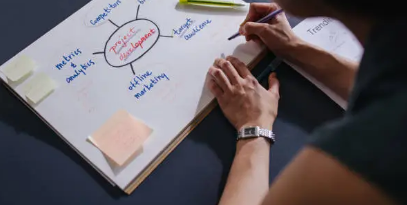
Downloads
Publicado
Como Citar
Edição
Seção
Licença
Copyright (c) 2024 Leandro Blass, Angélica Cristina Rhoden

Este trabalho está licenciado sob uma licença Creative Commons Attribution 4.0 International License.
Os autores possuem direitos autorais dos seus textos:
A revista Educação & Formação permite ao autor os direitos de publicação, no entanto, recomenda um intervalo de dois anos para o caso de republicação.
Os nomes e endereços informados nesta revista serão usados exclusivamente para os serviços prestados por esta publicação, não sendo disponibilizados para outras finalidades ou a terceiros.





